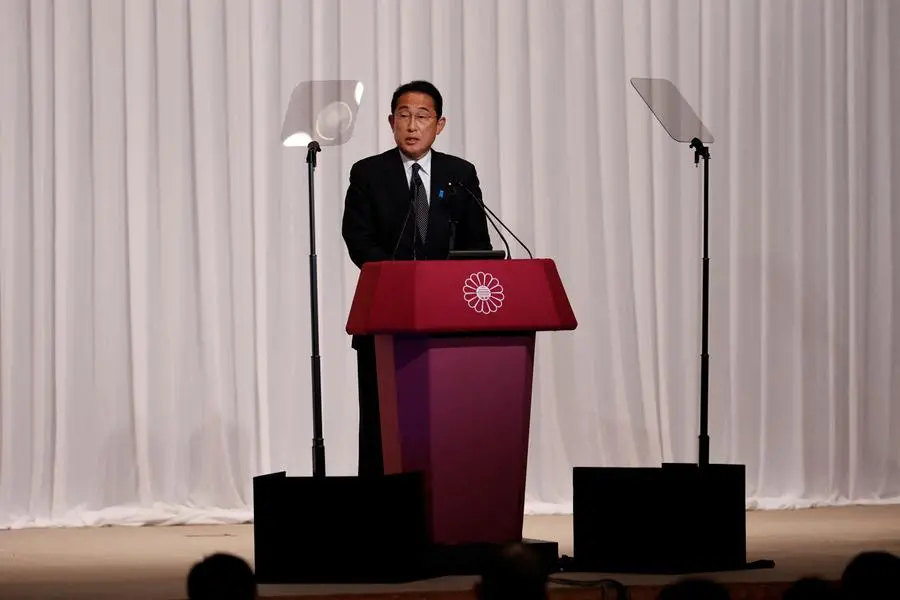PHOTO
Japan on Friday unveiled an outline of its mid-term economic roadmap that featured Prime Minister Fumio Kishida's policy priorities such as efforts to stem a declining birthrate with increases in childcare spending.
The outline, which will serve as a backbone for the government's economic policy roadmap set to be finalised in June, made no mention of how to fund such spending measures - a key sticking point ahead of a possible snap election Kishida could call later this year.
In Japan, fiscal reform is an urgent task for the industrial world's most heavily indebted government with public debt at more than 250% of its gross domestic product (GDP). Still, rounds of heavy anti-COVID stimulus spending made its primary budget-balancing target, excluding new bond sales and debt servicing costs, by the fiscal 2025 year end even more elusive.
On top of already heavy debt burdens, Kishida plans to double Japan's military outlay to cope with threats from China and North Korea, while also doubling childcare spending.
With his approval ratings improving after successfully chairing this year's G7 summit, some domestic media have reported that Kishida could call a snap election by the June 21 end of the current parliament session.
The prospects of a near-term election could delay much needed debate on how to fund Kishida's spending wish list that includes childcare - set to cost an additional 3 trillion yen for each of the coming three years.
Kishida has ruled out raising the consumption tax to fund the cost. Some ruling party lawmakers have called for issuing bonds, though the government says no decision has been made.
Although elections for parliament's powerful lower house is not due until 2025, Kishida could call a snap election when the opposition is still weak as a victory would help him solidify his grip of power within his ruling party.
(Reporting by Tetsushi Kajimoto and Yoshifumi Takemoto; Editing by Leika Kihara)





















